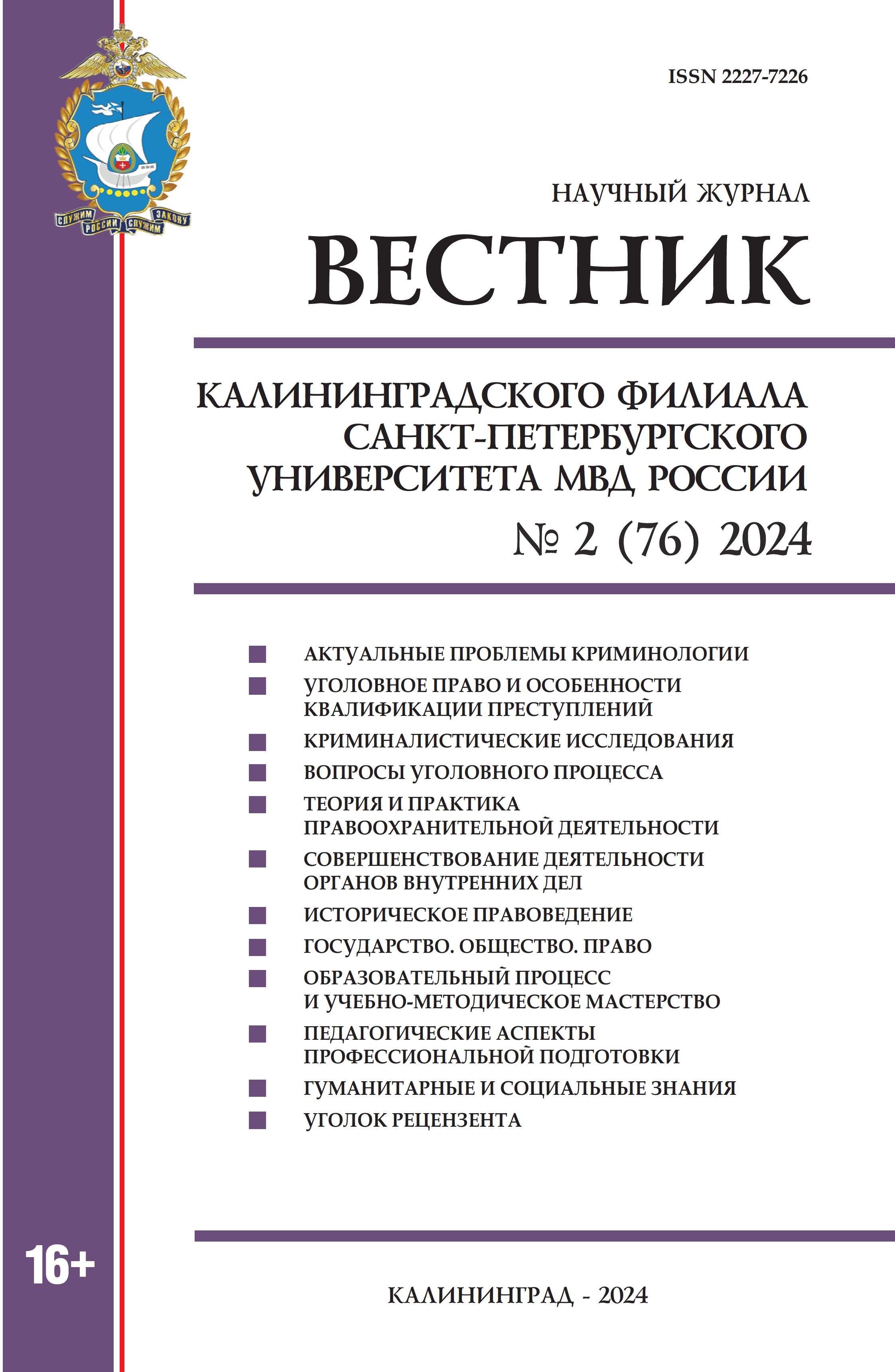Kaliningrad, Kalinigrad, Russian Federation
Introduction. The theory of criminology describes many types of crime that ensure the commission of other crimes. Thus, in some cases, the commission of violent crimes is preceded by an underlying crime: for example, the illegal acquisition of weapons precedes the commission of murder. In judicial investigative practice, there are also opposite situations in which a violent crime is a security measure in relation to a selfish one: for example, when a criminal who has stolen someone else’s property subsequently kills a random eyewitness who is able to expose him. However, it must be recognized that most often the type of crime that provides for it is mercenary crime. It consists of all kinds of thefts committed in order to later have the opportunity to commit other types of crimes, such as, for example, the illegal purchase of drugs. Or stealing a vehicle is required for the subsequent commission of a terrorist act. Recently, a steady trend has emerged within mercenary crime: the number of thefts and frauds committed using electronic means of payment is growing. Thefts of these two types are increasingly turning out to be not only independent acts, but also crimes that ensure that their victims commit other crimes. Methods. During the research, the authors of the article used the general scientific dialectical method of understanding the surrounding reality. In addition, methods of description and logical comprehension were used. An analysis of the dynamics of enabling crime was carried out. Results. The mechanism for committing thefts using electronic means of payment is currently noticeably different from what it was in the relatively recent past. To a greater extent, signs of illegally carried out operational investigative activities began to appear, aimed at collecting information about the victim of a crime, as well as ensuring crime. Illustrative examples took place during the elections of the President of the Russian Federation, held in March 2024. At this time, many cases were recorded when law-abiding Russian citizens who came to polling stations tried to destroy ballots or otherwise interfere with the exercise of voting rights and the normal work of election commissions. The investigation of these incidents led to the conclusion that the vast majority of such offenders in the recent past became victims of criminals who stole large sums of money from them. After committing the crime, the kidnappers contacted the victims and offered to return their money in exchange for performing certain illegal actions during the election campaign. Victims of crimes, being in despair and hoping for the return of the stolen goods, agreed to the conditions of the scammers. Knowing the mechanism of influence of the criminal on the victim, it is possible to develop recommendations, the implementation of which will help protect potential victims from manipulating their behavior.
Ensuring crime, signs of operational-search activity, manipulation of consciousness, victim of crime, theft.









